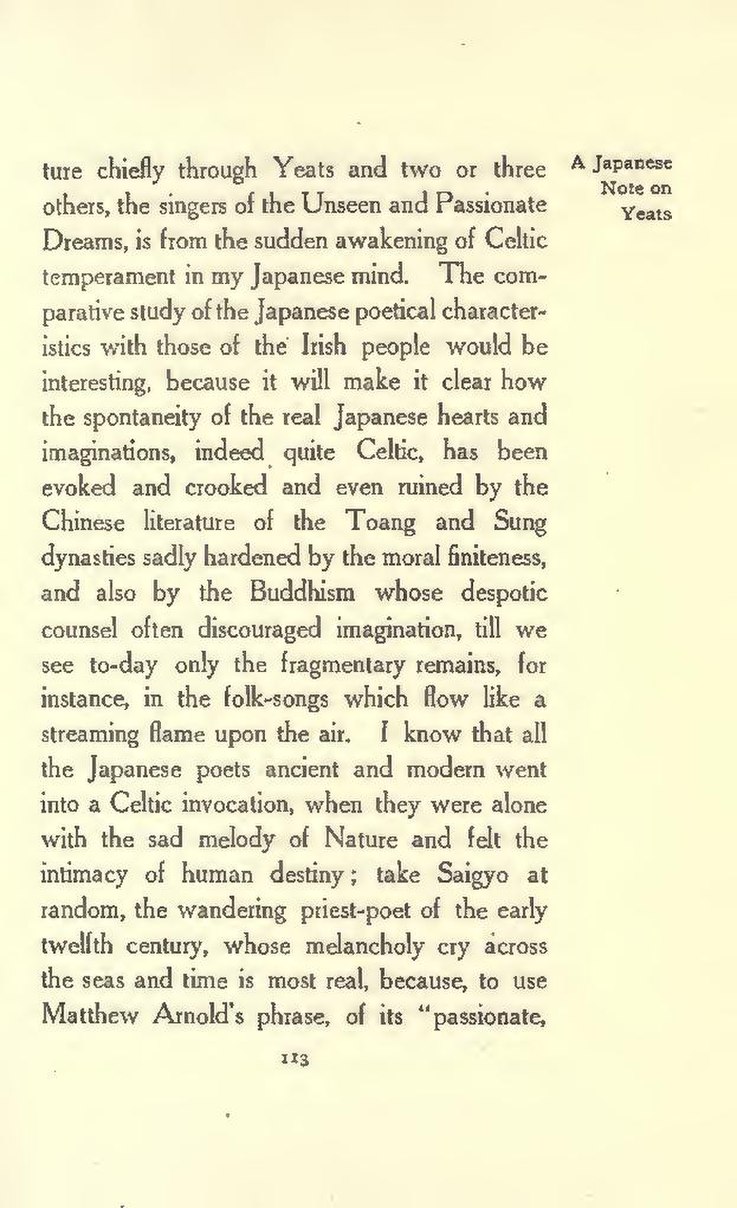ture chiefly through Yeats and two or three others, the singers of the Unseen and Passionate Dreams, is from the sudden awakening of Celtic temperament in my Japanese mind. The comparative study of the Japanese poetical characteristics with those of the Irish people would be interesting, because it will make it clear how the spontaneity of the real Japanese hearts and imaginations, indeed quite Celtic, has been evoked and crooked and even ruined by the Chinese literature of the Toang and Sung dynasties sadly hardened by the moral finiteness, and also by the Buddhism whose despotic counsel often discouraged imagination, till we see to-day only the fragmentary remains, for instance, in the folk-songs which flow like a streaming flame upon the air. I know that all the Japanese poets ancient and modern went into a Celtic invocation, when they were alone with the sad melody of Nature and felt the intimacy of human destiny; take Saigyo at random, the wandering priest-poet of the early twelfth century, whose melancholy cry across the seas and time is most real, because, to use Matthew Arold’s phrase, of its “passionate,
